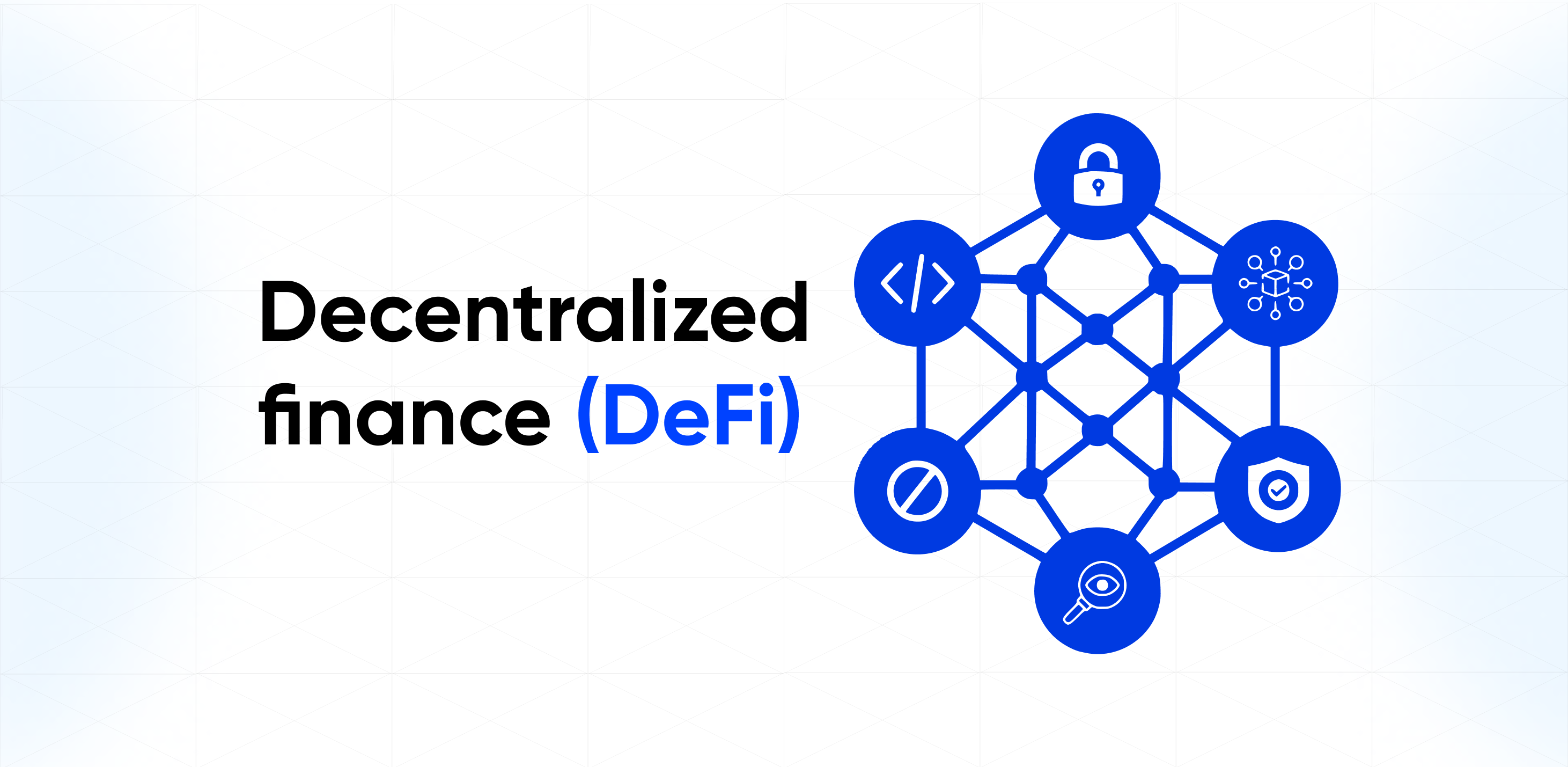The financial landscape is experiencing a significant shift, driven by the rise of decentralized finance (DeFi). DeFi signifies a transition from conventional centralized banking systems to a framework that removes intermediaries, harnessing blockchain technology to deliver financial services that are open and permissionless. In a nutshell, decentralized finance creates opportunities for individuals to borrow, lend, trade, and accrue interest independently of banks or centralized entities.
The Rise of Decentralized Finance

Decentralized finance began to gain momentum with the introduction of blockchain technology, particularly through Ethereum. The capacity to construct smart contracts on Ethereum’s network facilitated the automation of financial agreements without needing a third party for enforcement. This advancement established the groundwork for DeFi, which now encompasses an array of applications and protocols aimed at transforming the traditional financial framework.
DeFi applications are fundamentally trustless, meaning users do not have to depend on intermediaries for transaction execution. Instead, they place their trust in code and blockchain technology to ensure transactions are conducted properly. This innovation not only enhances transparency but also significantly lowers the cost associated with accessing financial services, particularly for those traditionally overlooked by conventional banking.
Mechanics of Decentralized Finance
Decentralized finance fundamentally operates through smart contracts, which are self-executing agreements with the terms coded directly into them. These smart contracts function on decentralized networks like Ethereum; they are immutable and transparent, meaning that once deployed, they cannot be modified, and their functions can be verified by anyone.
Users engage with DeFi protocols by linking their cryptocurrency wallets to these smart contracts. Whether it’s providing liquidity, earning interest, or borrowing assets, DeFi allows anyone with internet access to partake in financial activities from anywhere on the planet. This decentralized financial model eliminates traditional banking barriers related to geographic location, credit scores, and steep transaction fees.
Essential Elements of Decentralized Finance

DeFi consists of several fundamental components that collaborate to establish a functional decentralized financial ecosystem. These components feature decentralized exchanges (DEXs), lending platforms, stablecoins, and liquidity pools.
- Decentralized Exchanges (DEXs): Unlike conventional exchanges that depend on a central authority to facilitate trades, decentralized exchanges enable users to directly trade cryptocurrencies among themselves. These platforms function entirely on smart contracts, removing the need for intermediaries and promoting greater transparency. Notable DEXs like Uniswap and SushiSwap facilitate peer-to-peer trading of digital assets without the requirement of a trustworthy third party.
- Lending Platforms: DeFi lending platforms empower users to borrow and lend digital assets without needing a central authority or bank. Borrowers provide collateral in the form of cryptocurrency, allowing them to borrow other digital assets or stablecoins in return. The lending process is automated through smart contracts, which ensure timely repayments and equitable interest rates. Platforms such as Aave and Compound are at the forefront of this space, enabling users to earn interest on their holdings or borrow against their crypto assets.
- Stablecoins: Stablecoins form a vital part of the DeFi ecosystem, providing a means to mitigate the volatility often associated with cryptocurrencies. These digital assets are pegged to stable assets, such as the US dollar, to uphold a consistent value. Stablecoins like DAI and USDC are widely utilized within DeFi for lending, borrowing, and trading as they offer users a more stable medium of exchange.
- Liquidity Pools: Within DeFi, liquidity pools are aggregates of tokens locked in smart contracts to ensure liquidity for decentralized exchanges and other protocols. Users who contribute to these pools, known as liquidity providers, earn a share of the transaction fees generated by the protocol. This mechanism incentivizes users to lock their assets into the system, guaranteeing sufficient liquidity for seamless trading operations.
Advantages of Decentralized Finance
Decentralized finance presents numerous advantages in comparison to traditional finance, particularly regarding accessibility, security, and innovation.
- Accessibility: One of DeFi’s most striking benefits is its capacity to provide financial services to anyone with an internet connection. Traditional banking systems often necessitate extensive documentation, credit evaluations, and minimum balances, which can exclude significant segments of the population from accessing basic financial services. DeFi dismantles these barriers, enabling people from diverse backgrounds to engage in the global economy.
- Security and Transparency: DeFi applications function on public blockchains, allowing anyone to verify the code and transactions occurring on the network. This transparency diminishes the likelihood of fraud and corruption, as all activity is visible and immutable. Additionally, the implementation of smart contracts ensures that transactions are executed autonomously, reducing human error risks.
- Innovation: DeFi is a hotbed for financial innovation. Developers perpetually create new protocols and applications that push financial possibilities further. From yield farming and flash loans to tokenized assets and synthetic derivatives, DeFi is constantly expanding the repertoire of financial instruments available to users, presenting novel ways to build wealth and manage risks.
Challenges Facing Decentralized Finance
Despite its multitude of advantages, decentralized finance faces several challenges. These issues must be tackled for DeFi to truly realize its potential.
- Regulatory Uncertainty: A major challenge confronting DeFi is regulatory ambiguity. As DeFi operates independently of traditional financial settings, it often lands in a legal gray space. Regulators worldwide are still grappling with how to approach DeFi, and their actions could greatly influence its future. Excessive regulation may hinder innovation, while insufficient regulation could expose users to scams and fraud.
- Scalability: With the growth of DeFi, the networks supporting these protocols are facing mounting pressure. Ethereum, which is the most utilized blockchain for DeFi applications, has encountered considerable congestion, resulting in inflated transaction fees and slower processing times. Although solutions like Ethereum 2.0 and Layer 2 scaling technologies are underway, the current shortcomings in scalability remain a significant barrier to widespread adoption.
- Security Risks: While DeFi protocols are generally more transparent than traditional financial systems, they are not exempt from security risks. Weaknesses in smart contracts or blockchain networks may lead to substantial financial losses for users. Incidents involving hacks and exploits within DeFi are frequent, and as capital inflows into these systems increase, they continue to present attractive targets for malicious entities.
The Future of Decentralized Finance
The outlook for decentralized finance is promising, with the capacity to redefine the global financial framework. As blockchain technology continues to advance, DeFi is likely to evolve into a more scalable, secure, and accessible system for a wider audience. Furthermore, the interlinking of decentralized finance with other emerging technologies, such as artificial intelligence and the Internet of Things (IoT), could unlock even greater opportunities for financial innovation.
Nonetheless, for DeFi to achieve mainstream acceptance, the sector must confront and mitigate the challenges that currently limit its advancement. Enhanced scalability, improved security protocols, and a clear regulatory environment will be critical for fostering trust and credibility among users and investors. As these challenges are addressed, decentralized finance stands poised to become a fundamental aspect of the global economy, delivering a more inclusive and equitable financial system for all.
Post Views: 41








